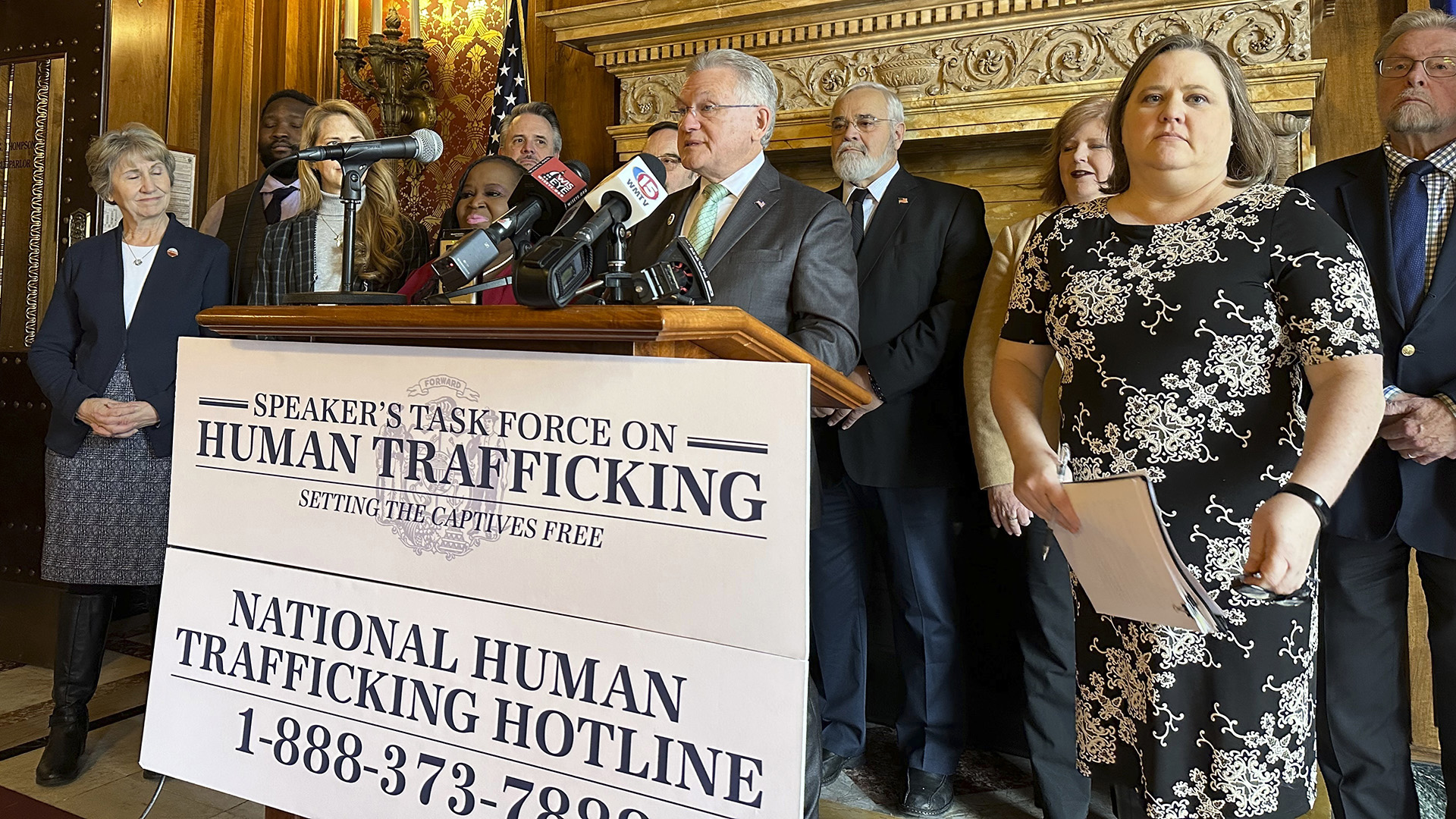
Wisconsin State Rep. Jerry O'Connor introduces a package of legislation to combat human trafficking during a news conference Wednesday, Jan. 10, 2024 in the state Capitol in Madison, Wis. as members of the state Assembly's human trafficking task force look on (AP Photo/Todd Richmond)
NGOCSTIP – Wisconsin’s Human Trafficking Council is preparing to launch in July 2025, following a pivotal legislative move by Governor Tony Evers. This statewide initiative introduces a multidimensional approach to combating human trafficking by integrating prevention, training, and survivor assistance. The new council has been tasked with building a network capable of addressing both early detection and long-term support. Key components of the program include mandated training for front-line workers and the establishment of a ten-million-dollar grant fund dedicated to aiding victims. With a sharp focus on transforming awareness into concrete outcomes, the council embodies a shift from reactionary measures to proactive governance. Through collaboration between public and private sectors, the state hopes to foster resilience across communities most vulnerable to trafficking. The initiative reflects Wisconsin’s commitment to elevating human rights protections and positions the state as a national leader in the fight against exploitation.
At the heart of Wisconsin’s plan, the state provides comprehensive training for individuals working in public transit, hospitality, and security. These sectors frequently encounter early signs of trafficking; however, many workers have lacked the specialized knowledge needed to intervene. As a result, the council’s program requires employees to complete scenario-based instruction that helps them recognize behavioral patterns and subtle indicators of coercion.
Meanwhile, trafficking experts and survivor advocates collaborate to design educational modules with a strong focus on real-world application. In addition, local oversight units will monitor training implementation, assess staff readiness, and deliver ongoing updates. Consequently, this investment in human capital strengthens early detection efforts and prevents trafficking operations from going unnoticed. Overall, the initiative reflects a core belief in the power of informed individuals to disrupt cycles of abuse and exploitation, particularly in high-risk, public-facing roles. Ultimately, by equipping everyday workers with the right tools, Wisconsin builds a culture of systemic vigilance.
“Read about: United Against Trafficking: African Union Endorses Continental Guidelines”
To supplement training and detection, the state allocated ten million dollars for support services that directly assist trafficking survivors. These grants will fund shelters, mental health care, job placement services, and legal aid. Nonprofit organizations and local service providers can begin applying for funding in late summer. The program emphasizes holistic care models that support both immediate safety and long-term reintegration.
Survivors often confront a wide range of post-escape challenges, including trauma, financial instability, and legal barriers. The grant system prioritizes culturally sensitive, survivor-led programs that ensure continuity of care. In rural areas, the funding will expand outreach and transportation services to close access gaps. State officials aim to use this financial commitment to signal a broader societal shift toward accountability and healing. While no single grant can reverse the harm endured, a coordinated support network offers survivors a sustainable path to rebuild their lives.
“Read more: From Pain to Breath: Inhaled Insulin Brings Comfort to Children with Type 1 Diabetes”
The human trafficking council will coordinate anti-trafficking strategies across Wisconsin as the central hub. Law enforcement, healthcare professionals, legal experts, and survivor representatives will form the council and meet quarterly to evaluate data, adjust protocols, and assess program impact. The council will streamline communication between state departments and local agencies. In the past, inconsistent policies and fragmented services blocked unified action, but this new structure closes those gaps. Stakeholders will engage through public forums and digital reporting tools. The council will publish an annual progress report to ensure transparency and guide future legislation. This effort goes beyond administration; it acknowledges the urgent need for a dynamic and adaptable response to trafficking. By gathering diverse voices, Wisconsin builds a flexible framework that evolves with emerging trafficking threats.
Beyond institutional reform, the initiative empowers communities to actively prevent human trafficking. Schools, media outlets, and religious organizations will launch public education campaigns. These efforts will bust common myths, promote safe reporting, and feature real-life survivor stories. Youth-centered programs will equip students to recognize grooming tactics and peer exploitation. Neighborhood watch groups and parent-teacher associations will also join the movement. Communities with limited institutional presence will lead grassroots involvement. The council builds lasting trust between local residents and response teams. By mobilizing everyday citizens and promoting a culture of protection, Wisconsin reinforces its social fabric against hidden crimes. The broader goal creates a resilient environment where people recognize and reject trafficking. Through informed community action, every layer of society contributes to lasting change.